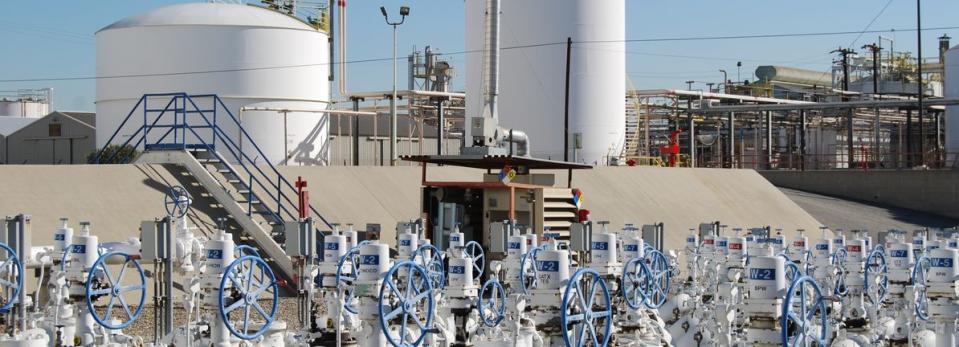Do These 3 Checks Before Buying Kinder Morgan, Inc. (NYSE:KMI) For Its Upcoming Dividend

Regular readers will know that we love our dividends at Simply Wall St, which is why it's exciting to see Kinder Morgan, Inc. (NYSE:KMI) is about to trade ex-dividend in the next 4 days. You will need to purchase shares before the 30th of July to receive the dividend, which will be paid on the 15th of August.
Kinder Morgan's next dividend payment will be US$0.25 per share, on the back of last year when the company paid a total of US$1.00 to shareholders. Calculating the last year's worth of payments shows that Kinder Morgan has a trailing yield of 4.8% on the current share price of $20.65. Dividends are a major contributor to investment returns for long term holders, but only if the dividend continues to be paid. That's why we should always check whether the dividend payments appear sustainable, and if the company is growing.
See our latest analysis for Kinder Morgan
Dividends are usually paid out of company profits, so if a company pays out more than it earned then its dividend is usually at greater risk of being cut. Kinder Morgan paid out 90% of its earnings, which is more than we're comfortable with, unless there are mitigating circumstances. A useful secondary check can be to evaluate whether Kinder Morgan generated enough free cash flow to afford its dividend. The company paid out 98% of its free cash flow over the last year, which we think is outside the ideal range for most businesses. Companies usually need cash more than they need earnings - expenses don't pay themselves - so it's not great to see it paying out so much of its cash flow.
Cash is slightly more important than profit from a dividend perspective, but given Kinder Morgan's payouts were not well covered by either earnings or cash flow, we would be concerned about the sustainability of this dividend.
Click here to see the company's payout ratio, plus analyst estimates of its future dividends.
Have Earnings And Dividends Been Growing?
When earnings decline, dividend companies become much harder to analyse and own safely. If business enters a downturn and the dividend is cut, the company could see its value fall precipitously. That's why it's not ideal to see Kinder Morgan's earnings per share have been shrinking at 2.8% a year over the previous five years.
The main way most investors will assess a company's dividend prospects is by checking the historical rate of dividend growth. Kinder Morgan's dividend payments per share have declined at 1.8% per year on average over the past 8 years, which is uninspiring.
To Sum It Up
From a dividend perspective, should investors buy or avoid Kinder Morgan? It's looking like an unattractive opportunity, with its earnings per share declining, while, paying out an uncomfortably high percentage of both its profits (90%) and cash flow (98%) as dividends. This is a starkly negative combination that often suggests a dividend cut could be in the company's near future. With the way things are shaping up from a dividend perspective, we'd be inclined to steer clear of Kinder Morgan.
Curious what other investors think of Kinder Morgan? See what analysts are forecasting, with this visualisation of its historical and future estimated earnings and cash flow .
If you're in the market for dividend stocks, we recommend checking our list of top dividend stocks with a greater than 2% yield and an upcoming dividend.
We aim to bring you long-term focused research analysis driven by fundamental data. Note that our analysis may not factor in the latest price-sensitive company announcements or qualitative material.
If you spot an error that warrants correction, please contact the editor at editorial-team@simplywallst.com. This article by Simply Wall St is general in nature. It does not constitute a recommendation to buy or sell any stock, and does not take account of your objectives, or your financial situation. Simply Wall St has no position in the stocks mentioned. Thank you for reading.

